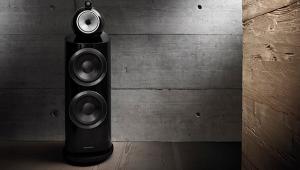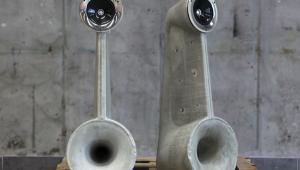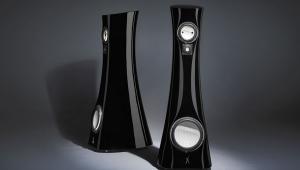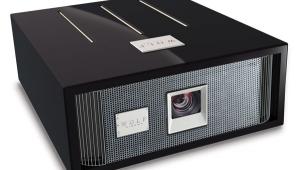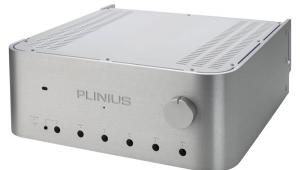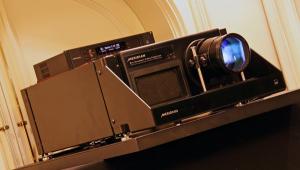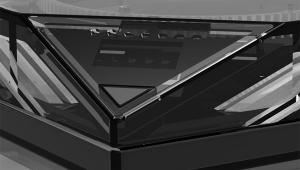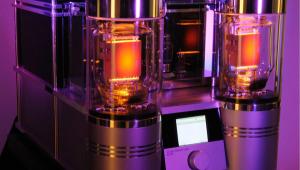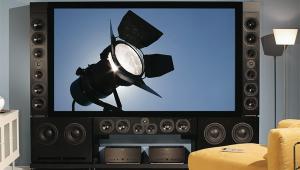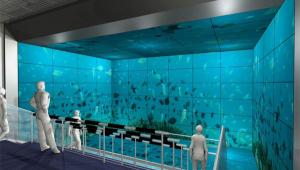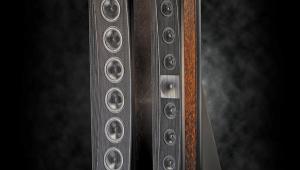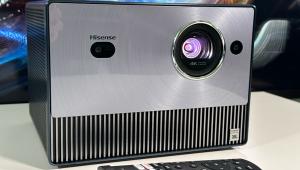Prime Meridian


The concept is simple—send a digital signal to each speaker, which has its own built-in digital-to-analog converter and power amp. This avoids the possibility of electrical interference in the speaker wire and allows the company to match the amp to the speaker. Of course, each speaker must have an AC power outlet handy, but that's a small price to pay for all the benefits of this approach.

To accommodate Blu-ray players and other HDMI sources, we start with the HD621 HDMI Audio Processor ($2995), which provides six HDMI inputs. The HD621 separates the video and audio signals in the selected input and sends the video to its HDMI output, which is connected to the display. The audio is de-jittered and sent to an 861 surround processor as 44.1 or 48kHz in standard mode or 88.2 or 96kHz in high-resolution mode. Signals not at one of the selected rates are up- or downconverted as needed, and the resolution is increased to 24 bits in all cases; according to Meridian, the 861 operates best when its input is 24/96. The player must decode Dolby TrueHD and DTS-HD to PCM before sending the audio via HDMI, though the HD621 can pass regular Dolby Digital and DTS bitstreams for the 861 to decode.

The 861 surround processor ($18,995) is now in its fourth generation and still going strong. When I asked why it still doesn't provide any HDMI ins or outs, Meridian replied that keeping digital video out of the 861 was important to maintain audio quality, and video connections change much more often than audio, which is why the company added the HD621 to its product stable. Also, the HD621 can be added to any Meridian processor, protecting customers' investments. In any event, the 861 is widely regarded as one of the best-sounding pre/pros on the market; it does a superlative job of time alignment, bass management, and room correction; and it provides plenty of inputs for analog-video and audio-only sources.

Next in the audio signal path is the AC11 SpeakerLink Hub ($995), which takes PCM from the 861 and converts it to SpeakerLink, Meridian's proprietary digital-audio connection scheme. Standard CAT5 cables are routed from the AC11 to each DSP speaker.

For the front right and left positions, the flagship DSP8000 ($64,995/pair) is an easy choice. The curvaceous cabinet sports six 8-inch, long-throw bass drivers, three on each side to cancel any untoward vibrations. In a separate enclosure are one 6-inch polypropylene midrange and one 1-inch horn-loaded aluminum-dome tweeter. Four 24-bit D/A converters feed three 150-watt power amps for the bass drivers (one per pair) and two 100W amps for the midrange and tweeter (one each). Bottom line—an in-room frequency response from 20Hz to 20kHz (±3dB), maximum output greater than 118dB at 1 meter, and overall distortion less than 0.02% at any frequency or level.

You could put more DSP8000s in the surround positions, or you might opt for the DSP7200 ($34,995/pair). This model uses the same drivers as the DSP8000 and provides two 8-inch woofers, one 6-inch midrange, and one 1-inch tweeter, all front mounted. Four 24-bit DACs feed four 100W amps, one per driver, to achieve a maximum output greater than 112dB at 1m, an in-room frequency response from 30Hz to 20kHz (±3dB), and overall distortion less than 0.02%.

The DSP8000 does not yet have a center-channel version, but the DSP7200 does—the DSP7200HC ($17,995). This horizontal, ported design has the same compliment of drivers in an unusual, asymmetrical arrangement that looks like it might mitigate the comb filtering associated with more conventional center speakers. The specs are the same as its floorstanding counterpart.

So how much would this system set you back? A 5-channel system with two DSP8000s, two DSP7200s, one DSP7200HC, and the associated electronics (no sub required) would be over $140,000, while a 7-channel system with two more DSP8000s would be over $205,000. Of course, Meridian recommends its 800 DVD player, but I can't see spending almost $25,000 for something that doesn't play Blu-ray.
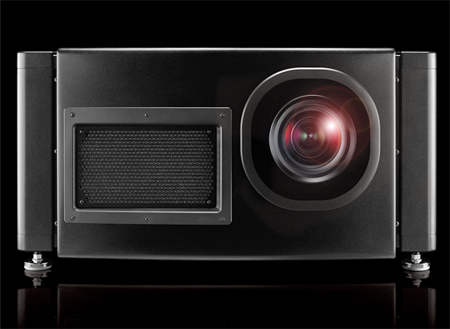
If you still have more money burning a hole in your bank account, you could always include the previously profiled Meridian 810 4K projector for an additional $185,000. This ultimate A/V system would outpace the performance of just about any commercial cinema by far, so why go out to the movies when a much better experience awaits at home?
- Log in or register to post comments
